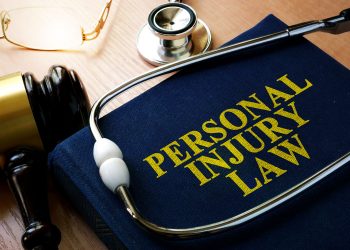Construction sites are inherently dangerous places, with numerous hazards that can lead to serious accidents. Despite rigorous safety regulations and procedures, accidents on construction sites in Atlanta still occur with unsettling frequency. When these misfortunes happen, affected workers and their families often face not just physical harm, but also financial distress.
We understand the complexities of construction accident cases in Atlanta, ranging from workers’ compensation to personal injury lawsuits. Navigating these legal processes can be overwhelming, particularly when dealing with the aftermath of an accident. Having a seasoned Atlanta construction site accident attorney can be crucial. An attorney with specialized experience in construction accidents will diligently work to protect your rights and ensure that you receive the full compensation you are entitled to.
Our role in this scenario is to provide support, legal insight, and advocacy for individuals affected by construction accidents. In Atlanta, where construction is booming, the chances of such incidents are even higher, making awareness and legal preparedness essential. We’re committed to supplying the resources and legal guidance necessary for those seeking justice and compensation for injuries sustained on construction sites.
Understanding Construction Accident Law in Georgia
Georgia’s construction accident law is complex, encompassing a range of regulations, rights, and liabilities. We aim to clarify the key components, focusing on the scope of construction law, worker rights, safety regulations, and OSHA’s involvement.
Scope of Construction Law and Liability
Construction law in Georgia defines the liabilities and responsibilities of all parties involved in a construction project. This includes contractors, subcontractors, architects, and engineers. Liability arises in cases of negligence, where failure to adhere to safety protocols or proper procedures leads to an accident. Key elements of liability that we need to consider:
- Construction Site: The maintenance and safety of the site are critical. Proper signage and barriers must be in place to prevent accidents.
- Scaffolding: Given that scaffolding is a common source of injury, it’s mandated that all scaffolding meets strict safety standards to protect workers.
Workers’ Rights and Safety Regulations
Workers in Georgia are entitled to a safe working environment. State and federal laws stipulate that employers must provide safety training and equipment. In the event of an injury, workers have the right to seek compensation, which may include medical expenses and lost wages. Important aspects to understand:
- Workers Compensation: A no-fault system providing benefits to injured workers without the need to prove employer negligence.
- Personal Injury Law: Workers can also pursue compensation under personal injury law if the accident was caused by a third party other than the employer.
The Role of Occupational Safety and Health Administration (OSHA)
OSHA plays a crucial role in enforcing safety standards in the construction industry. Compliance with OSHA regulations is obligatory, and failure to do so can result in legal action. The administration conducts inspections and can issue penalties for violations. Key factors involving OSHA:
- Safety Inspections: Routine checks at construction sites ensure adherence to federal safety guidelines.
- Reporting and Recordkeeping: Contractors are required to keep detailed records of work-related injuries and illnesses.
Our understanding of construction accident law in Georgia must include these entities and their interrelated functions. This knowledge enables us to advocate effectively for the safety and rights of workers and to navigate the complexities of liability and compensation within the construction industry.
Legal Guidance After a Construction Accident
In the aftermath of a construction accident, it’s crucial to understand the steps to take, how to pursue compensation, and the importance of selecting an attorney adept in handling such cases.
Steps to Take Following an Accident
Immediately after a construction accident, it’s imperative to:
- Seek medical attention: No matter how minor injuries may seem, they can be indicative of more serious conditions, such as brain injuries or spinal cord injuries.
- Report the accident: Notify the construction company and ensure the incident is recorded, as this is essential for workers’ compensation or any future lawsuit.
- Document everything: Take photographs of the scene, your injuries, and collect contact information from witnesses.
- Preserve evidence: Keep all relevant clothing and equipment untouched, as they may be pertinent to proving negligence or product liability.
Pursuing Compensation for Damages
Compensation claims may include:
- Medical expenses: These cover immediate medical bills and future rehabilitation costs.
- Lost wages: You may be entitled to compensation for wages lost during recovery.
- Pain and suffering: This accounts for the physical and emotional trauma experienced due to the accident.
- Wrongful death: In tragic cases, families may seek funeral expenses and loss of consortium through wrongful death claims.
To effectively pursue a claim, consider the following types of compensation:
- Workers’ compensation: For injuries sustained on the job, the Workers’ Compensation Program can provide financial support.
- Personal injury lawsuit: If negligence is involved, filing a lawsuit might be the appropriate course of action to receive justice.
Selecting the Right Attorney for Your Case
When choosing an attorney, ensure they offer:
- Experience with construction accidents: An attorney familiar with construction cases, industry experts, and heavy machinery is pivotal.
- A successful track record: Look for a history of securing compensation for damages, negligence, and defective machinery claims.
By selecting a dedicated Atlanta construction accident lawyer, we can ensure proper legal representation, advice on proper equipment and safety training, and an understanding of the complexities of emotional distress in these cases. Our goal is to champion for serious injury victims and navigate the legal process with confidence and clarity.














